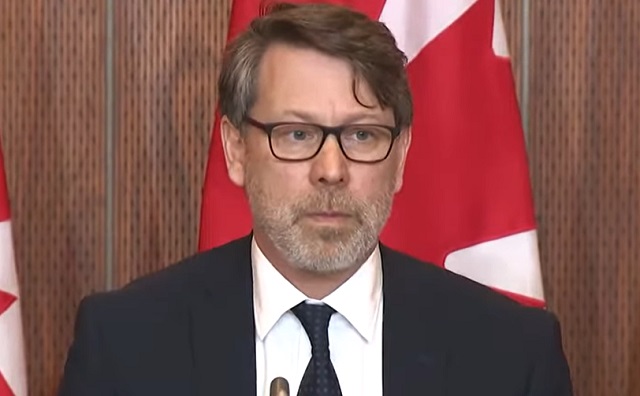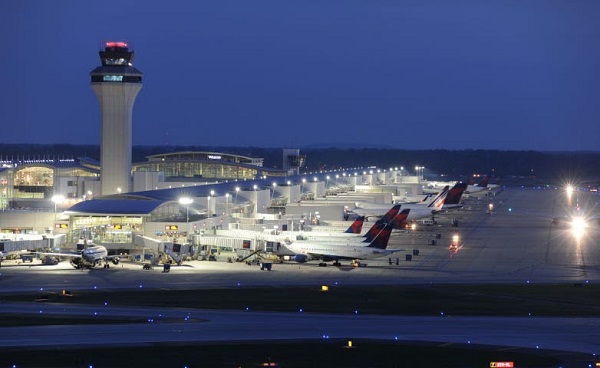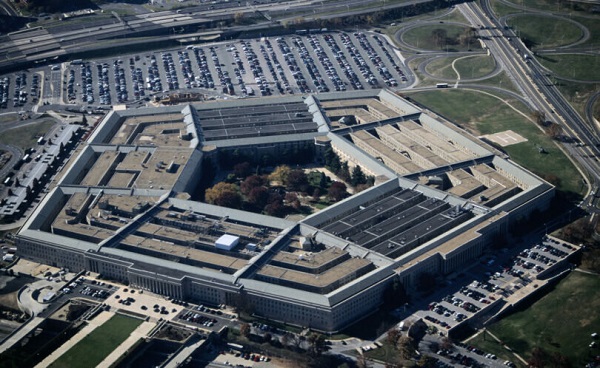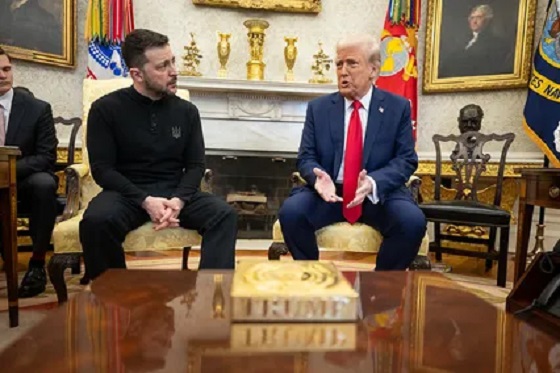espionage
Canada’s inquiry into China’s election meddling begins with officer saying he dismissed warnings

Chief Electoral Officer Stephane Perrault
From LifeSiteNews
Chief Electoral Officer Stéphane Perrault was secretly warned by security agents of irregularities in the 2019 election but said because the ‘party’ controls the nomination process he did not do more to look into it.
The public inquiry into alleged meddling in Canada’s two most recent federal elections by agents of the Chinese Communist Party (CCP) began last week with testimony public from Chief Electoral Officer Stéphane Perrault, who was secretly warned by security agents of irregularities in the 2019 election but said because the “party” controls the nomination process he did not do more to look into it.
“The Party is the only entity that controls the nomination process,” Perrault testified at the Commission last Thursday.
“I would have to inform the Commissioner of Elections and then she would have to make the determination as to what appropriate action would be undertaken, but I don’t have an enforcement role.”
The inquiry is being headed by Justice Marie-Josée Hogue, who had earlier said that she and her lawyers will remain “impartial” and will not be influenced by politics and began on January 29.
In January, Hogue said that she would “uncover the truth whatever it may be.”
“The role of a Commission of Inquiry is to investigate the facts in order to understand what happened in a given situation. Under its mandate, it carries out an objective search of the truth while identifying specific matters, draws conclusions and make recommendations to the government,” she said.
The inquiry last Thursday learned that security agents had secretly warned Perrault of irregularities that took place at a 2019 nomination meeting in a Toronto riding, Don Valley North.
Nando de Luca, Nando Commission counsel for the Conservative Party, asked Perrault to provide more details about the incident, asking him, “Am I correct those concerns related to the Liberal Party nomination contest?”
“I believe I am not authorized to speak beyond what is in this public statement,” Perrault replied.
The tip from the Canadian Security Intelligence Service (CSIS) to Perrault was disclosed by Daniel Sheppard, who is counsel for the Commission.
“You were informed by the CSIS of one fact-specific matter. Is that correct?” Sheppard asked.
“That is correct,” Perrault replied.
- Counsel Sheppard: “My understanding is you were informed by CSIS of a fact situation that could have involved foreign interference related to voting in the nomination contest in the riding of Don Valley North, Ontario. Is that correct?”
- Perrault: “That is correct … ”
- Counsel Sheppard: “You referred a matter to the Officer of the Commissioner of Canada Elections?”
- Perrault: “Correct … ”
- Counsel Sheppard: “Is there anything else you are able to say in a public setting about the information you received from CSIS that we just discussed?”
- Perrault: “No.”
The Foreign Interference Commission, as it is known, “will examine and assess the interference by China, Russia, and other foreign states or non-state actors, including any potential impacts, in order to confirm the integrity of, and any impacts on, the 43rd and 44th general elections (2019 and 2021 elections) at the national and electoral district levels.”
The first set of hearings, or “Stage 1,” will take place from now until April 10 and include a host of witnesses that will include Prime Minister Justin Trudeau and many others who have not been named.
Also set to testify is former Liberal MP Han Dong and former Ontario cabinet minister Michael Chan, both of whom have been victims of alleged CCP interference.
The “Stage 2” part of the public inquiry will take place this fall and will look at the Trudeau government’s ability to both detect and fight foreign interference targeting Canada’s electoral processes.
The hearings are being held at the Library and Archives Canada building in Ottawa.
Chief Electoral Officer claims it was not his job to ‘certify’ integrity of election
During testimony, Perrault claimed that his agency had done a good job, saying, “I believe we have one of the most robust and complete political financing regimes in the world,” noting that this “does not make it perfect.”
He claimed that it was not his job to in effect police elections, saying that as Chief Electoral Officer “I am not called upon to certify the integrity of an election.”
“What I am called upon to do is account for it and provide evidence regarding my administration of the election for others, including participants who may wish to challenge,” he said.
Gib van Ert, counsel for the Conservative MP Michael Chong, who was the target of election interference from agents of the CCP, asked him, “But you’re concerned about the integrity of elections?”
“Of course,” Perrault replied.
“And so when you are considering the integrity, do I have it right that if you felt 330 of the local elections had integrity but eight lacked integrity, you wouldn’t say to yourself, ‘Well, close enough, we’ve come pretty close to 338,’” asked van Ert, adding, “You are having to hold yourself and your agency to a standard of 338?”
“I would report if I know of incidents that affect the integrity of an election,” Perrault said in reply, adding, “If I am aware of factual information that affects that, even if it is one electoral district, I would include that in my report to Parliament.”
Perrault had earlier told MPs that he saw no evidence of CCP interference but admitted that he did not look into this.
Perrault was the first to testify, earlier told MPs in 2022, “There may be offences that are committed that we find out after the fact and there may be investigations that are or are not underway that I would know about but with the information I have, I have no reason to believe the election was not a free and fair election.”
Perrault has said that he has “no specific intelligence or evidence in that regard” whether the 2019 and 2021 federal elections were disrupted by foreign actors.
When it comes to the CCP, many Canadians, especially pro-freedom Chinese Canadians, are concerned considering Trudeau’s past praise for China’s “basic dictatorship” and his labeling of the authoritarian nation as his favorite country other than his own.
The potential meddling in Canada’s elections by agents of the CCP has many Canadians worried as well.
The federal government under Trudeau has been slow in responding to allegations of CCP election meddling after announcing on September 7, 2023, that it would be launching a public inquiry led by Hogue.
The public inquiry comes after Trudeau launched a failed investigation into CCP allegations last year after much delay. That inquiry was not done in the public and was headed by “family friend” and former Governor General David Johnston, whom Trudeau appointed as “independent special rapporteur.”
Johnston quit as “special rapporteur” after a public outcry following his conclusion that there should not be a public inquiry into the matter. Conservative MPs demanded Johnston be replaced over his ties to both China and the Trudeau family.
To date, the evidence that parliamentary committees have uncovered shows that Canadian authorities were aware that agents of the CCP were targeting MPs from opposition parties but decided against taking any action.
conflict
Iran nuclear talks were ‘coordinated deception’ between US and Israel: report

From LifeSiteNews
Reports state that U.S. peace talks were a ruse and that Trump gave Netanyahu a ‘green light’ to hit Iran’s nuclear and military sites, killing top commanders.
A senior Israeli official told the Jerusalem Post that Tel Aviv and Washington worked together to convince Tehran that diplomacy was still possible after Israel was ready to attack Iran. Just hours before Israel’s massive assault began, President Donald Trump maintained he was still committed to talks.
The Israeli outlet reports, “The round of U.S.-Iranian nuclear negotiations scheduled for Sunday was part of a coordinated U.S.-Israeli deception aimed at lowering Iran’s guard ahead of Friday’s attack.”
READ: Israel strikes Iran’s nuclear sites, kills top commanders in massive air assault
In a post on Truth Social shortly before the Israeli strikes began, Trump declared that “We remain committed to a Diplomatic Resolution to the Iran Nuclear Issue! My entire Administration has been directed to negotiate with Iran. They could be a Great Country, but they first must completely give up hopes of obtaining a Nuclear Weapon. Thank you for your attention to this matter!”
After the Israeli attack was in progress, Secretary of State Marco Rubio denied that the U.S. was involved. However, American officials have said the White House was aware Israel was set to begin striking Iran, with Trump telling Fox News he was briefed on the operation.
Barak Ravid of Axios, moreover, later reported that Tel Aviv was given “a clear U.S. green light” to start bombing, citing two unnamed Israeli officials.
Sources speaking with Axios said the perceived split between Trump and Israeli Prime Minister Benjamin Netanyahu was coordinated behind the scenes. “Two Israeli officials claimed to Axios that Trump and his aides were only pretending to oppose an Israeli attack in public – and didn’t express opposition in private,” the report explained. “The goal, they say, was to convince Iran that no attack was imminent and make sure Iranians on Israel’s target list wouldn’t move to new locations.”
The sources said that Trump and Netanyahu discussed the attack during a phone call on Monday. After the call, reports said Trump pressed Netanyahu not to attack Iran, but that was another effort to deceive Iran.
In a second post following the attack, Trump said he gave Iran the opportunity to make a deal, and suggested that Israel used American weapons in the massive air raid. “I gave Iran chance after chance to make a deal. I told them, in the strongest of words, to ‘just do it,’ but no matter how hard they tried, no matter how close they got, they just couldn’t get it done,” the president wrote.
The post continued, “I told them it would be much worse than anything they know, anticipated, or were told, that the United States makes the best and most lethal military equipment anywhere in the World, BY FAR, and that Israel has a lot of it, with much more to come – And they know how to use it.”
The U.S. and Iran began negotiations on establishing a new nuclear agreement in April, with the two sides engaging in five rounds of Omani-mediated talks. At times, a deal appeared possible, with Iranian officials saying the dialogue was leading to progress. A sixth round of talks was scheduled for Sunday, but now appears unlikely.
A second source speaking with the Jerusalem Post said the goal of Israel’s military operations was not the complete destruction of Iran’s nuclear facilities, but rather to hit missile sites and top Iranian leaders to bring down the government.
Israel has conducted several rounds of strikes so far, hitting nuclear facilities, residential buildings in Tehran, and military sites. Iran has confirmed that several military leaders and nuclear scientists were killed in the bombing.
espionage
FBI Director: CCP Behind Wave of Pathogen Smuggling as Third Chinese Student Charged in Michigan Lab Probe

 Sam Cooper
Sam Cooper
“In a follow up interview with FBI and ICE HSI agents, Han admitted to sending the packages and lying about their contents”
In an intensifying pattern of national security investigations targeting unauthorized biological shipments from China into Detroit, U.S. authorities on Monday confirmed the arrest of a third Chinese national allegedly involved in smuggling undeclared bio-materials into the United States—this time for use at a University of Michigan laboratory.
“This case is part of a broader effort from the FBI and our federal partners to heavily crack down on similar pathogen smuggling operations, as the Chinese Communist Party works relentlessly to undermine America’s research institutions,” FBI Director Kash Patel posted to X on Monday evening.
The latest defendant, Chengxuan Han, is a citizen of the People’s Republic of China and a doctoral student at the College of Life Science and Technology in Wuhan. She has been charged with smuggling goods into the U.S. and making false statements, according to a federal criminal complaint filed in U.S. District Court in Detroit.
From September 2024 through March 2025, prosecutors allege, Han sent four international shipments containing concealed biological materials to individuals affiliated with a University of Michigan lab. The contents were identified as Caenorhabditis elegans — roundworms commonly used in genetic and biomedical research. The packages were mis-manifested and not declared in accordance with U.S. import regulations.
On June 8, Han arrived at Detroit Metropolitan Airport on a J-1 visa and was stopped by U.S. Customs and Border Protection officers. She allegedly denied having sent any biological materials to the U.S. and made false statements about the nature of the shipments. Agents also discovered that content on her electronic device had been deleted three days before her arrival — a detail included in the federal complaint.
“In a follow up interview with FBI and ICE HSI agents, Han admitted to sending the packages and lying about their contents,” Patel commented.
“The alleged smuggling of biological materials by this alien from a science and technology university in Wuhan, China — to be used at a University of Michigan laboratory — is part of an alarming pattern that threatens our security,” said U.S. Attorney Jerome F. Gorgon, Jr. “The American taxpayer should not be underwriting a PRC-based smuggling operation at one of our crucial public institutions.”
The case marks the third time in one week that Chinese nationals connected to the University of Michigan have been charged with allegedly smuggling undeclared biological material from China into the U.S. for laboratory research.
On June 3, federal prosecutors charged Yunqing Jian, 33, a postdoctoral fellow at the University of Michigan, and her boyfriend, Zunyong Liu, 34, with conspiracy, smuggling goods into the U.S., false statements, and visa fraud. Jian and Liu are accused of importing Fusarium graminearum — a fungus considered in some scientific literature to be a potential agroterrorism threat — into the country without proper declaration.
Officials allege Liu, who conducts research on the same pathogen at a university in China, initially lied to investigators but later admitted to smuggling the fungus for research in Jian’s Michigan lab.
The Bureau is a reader-supported publication.
To receive new posts and support my work, consider becoming a free or paid subscriber.
-

 International1 day ago
International1 day agoIsrael’s Decapitation Strike on Iran Reverberates Across Global Flashpoints
-

 Business2 days ago
Business2 days agoTrump: ‘Changes are coming’ to aggressive immigration policy after business complaints
-

 illegal immigration2 days ago
illegal immigration2 days agoLA protests continue as judge pulls back CA National Guard ahead of ‘No Kings Day’
-

 Business2 days ago
Business2 days agoThe carbon tax’s last stand – and what comes after
-

 National2 days ago
National2 days agoCarney promotes MP instrumental in freezing Freedom Convoy donors’ bank accounts
-

 International2 days ago
International2 days agoPentagon agency to simulate lockdowns, mass vaccinations, public compliance messaging
-

 conflict2 days ago
conflict2 days agoIsrael strikes Iran, targeting nuclear sites; U.S. not involved in attack
-

 Alberta1 day ago
Alberta1 day agoPunishing Alberta Oil Production: The Divisive Effect of Policies For Carney’s “Decarbonized Oil”







